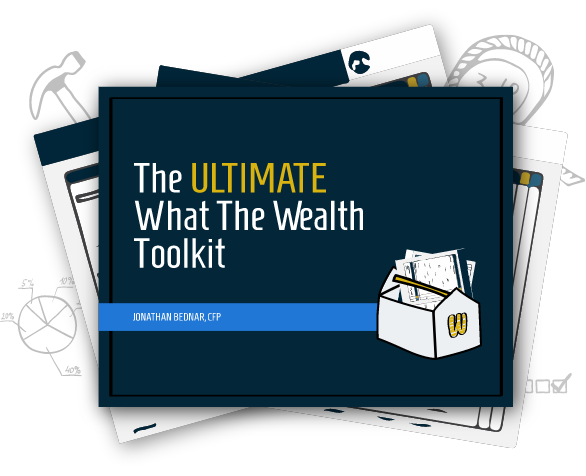Navigating the Current Market Volatility
We’re all aware that we are experiencing market volatility. But Ryan Detrick, Chief Market Strategist at LPL Financial, recently posted a startling statistic on Twitter. The market recently suffered its worst 100 days in almost 100 years. Yikes!
Controlling Chaos
Financial advisors often tell clients one of the best things to do in the face of market volatility is nothing. When we make decisions based on emotion, we often make mistakes. So it’s better to sit pat than to make a mistake.
But, there are a few timely strategies that can be smart moves for some investors, ways to control the chaos to the extent that doing so is possible. Our goal is to make intentional decisions.
Two Timely Strategies During Market Volatility
These two strategies can help you make lemonade out of lemons when during market volatility.
Roth Conversion
A Roth Conversion takes some of the money in an IRA or 401(k) if the provider allows and moves it from those retirement accounts into a Roth IRA or Roth 401(k). This is a taxable event, so you will pay taxes on the money you convert, but it’s almost certain that tax rates will be higher in the future than they are now so it’s a gamble from that perspective but a smart one. And once the money is in the Roth, it grows tax-free going forward.
This strategy can be a good one during a down market because you’re paying taxes on assets that are worth less, so you’ll have a lower tax liability than if you were converting assets at a high.
Traditional IRA account owners have considerations to make before performing a Roth IRA conversion. These primarily include income tax consequences on the converted amount in the year of conversion, withdrawal limitations from a Roth IRA, and income limitations for future contributions to a Roth IRA. In addition, if you are required to take a required minimum distribution (RMD) in the year you convert, you must do so before converting to a Roth IRA.
Tax-Loss Harvesting
Tax-loss harvesting allows you to reduce your tax liability by selling investments at a loss and then deducting those losses on your taxes. The deduction can offset some or all of the capital gains taxes you might owe on other investments you sold at a gain.
Tax-loss harvesting is something you should be monitoring all year, but many people leave it to the end of the year. Historically, the summer months have been a little more volatile for the market, so it’s a good time to employ the strategy.
When you employ tax-loss harvesting, be aware of the wash sales rule. Your loss is disqualified if, within 30 days of selling the investment, you invest in something identical or “substantially similar” to use the IRS jargon to the investment you sold.
Remember all of the Gamestop craziness in January 2021? People were buying and selling so fast that they were running afoul of the wash sales rule. Some of those trades made money, and some of them lost money, but because the trades were so frequent, all the losses were disqualified from a tax perspective.
Consult Your Advisor
It’s times like these when a financial advisor you trust is really worth their weight in gold! They can help talk you down when you’re feeling panic set in because of market volatility and can help advise you on strategies you can employ when things are wild so you can Create the Life You Love!
Listen in as I describe how you can make smart, intentional financial decisions without giving in to panic. You will learn why you should consider doing a Roth conversion with your retirement funds, the benefit of only focusing on the things you can control, and how to understand what best suits your objectives.
Content in this material is for general information only and not intended to provide specific advice or recommendations for any individual. All performance referenced is historical and is no guarantee of future results. All indices are unmanaged and may not be invested into directly.
What The Wealth, Paradigm Wealth Partners and LPL Financial do not provide tax advice. Clients should consult with their personal tax advisors regarding the tax consequences of investing.
Listen to the Full Episode:
What You’ll Learn In Today’s Episode:
- Why you shouldn’t panic when there is a market downturn.
- How to make more intentional financial decisions.
- Why you should only focus on things you can control.
- What to know about doing a Roth conversion with your retirement funds.
- How to understand what will best suit your plan.
Ideas Worth Sharing:
“Make intentional decisions, but avoid panicking.” – Jonathan Bednar
“When panic sets in, that is when mistakes happen.” – Jonathan Bednar
“Think about ways you can take this chaos and make it controlled.” – Jonathan Bednar
Resources In Today’s Episode:
- Ryan Detrick: LinkedIn | Twitter
- Jonathan Bednar: Email | Twitter | LinkedIn
- What The Wealth?! by Jonathan Bednar
Enjoy the show? Use the Links Below to Subscribe:





